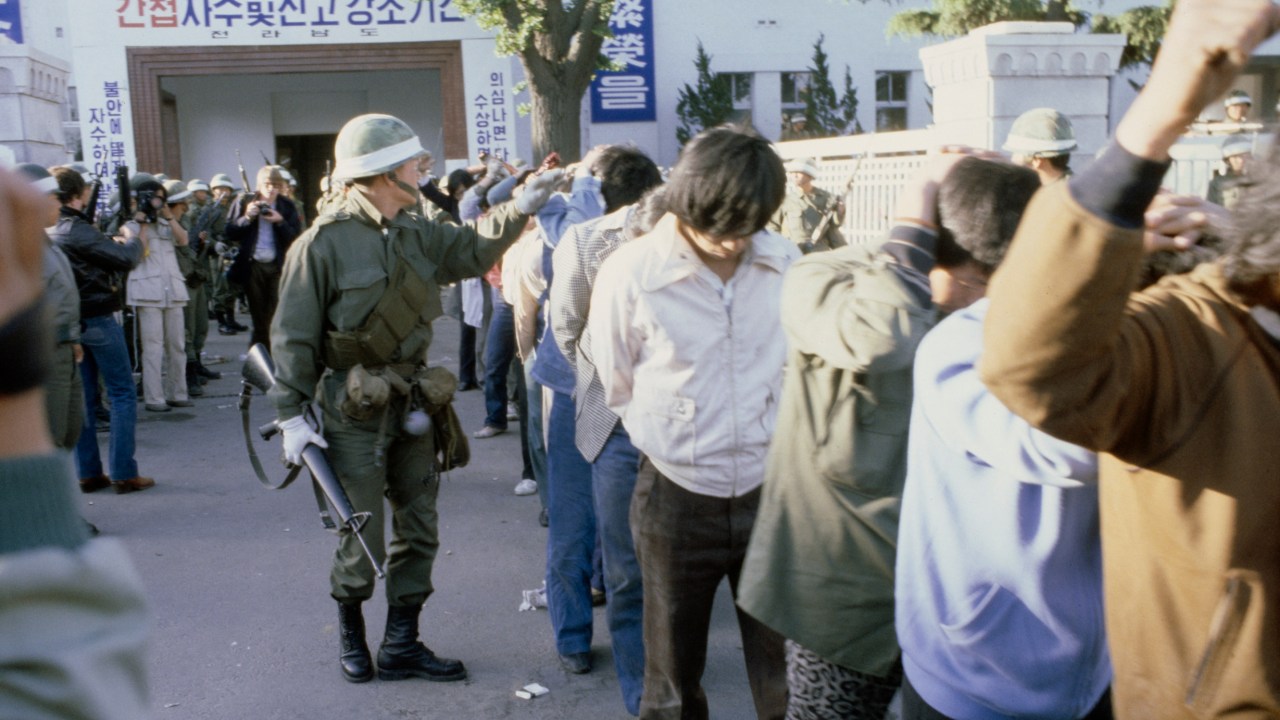The news that President Yoon had instated martial law on Tuesday hit me hard. The last time martial law was declared in South Korea, in May 1980, I was a Peace Corps volunteer living in Gwangju, a city in the south west of the country. Peaceful protests against martial law took place in the city, until the military moved in and killed hundreds of ordinary people.
What became known as the Gwangju Uprising changed Korea, and me, forever. I was one of a handful of foreigners to witness the uprising, and ended up translating for the few foreign reporters who managed to get into the city.
Forty-four years later, I couldn’t help but worry that something similar would happen again this week. Several Facebook posts noted the inauspicious timing of President Yoon’s declaration of martial law – which thankfully has now been rescinded. In just a few days the Korean novelist Han Kang will receive the Nobel prize for literature. One of her best-known books, Human Acts, is about the Gwangju Uprising. It is an event that many in Korea still haven’t come to terms with.
The Gwangju Uprising began after General Chun Doo-hwan came to power in a coup on Dec 12 1979, following the assassination of President Park Chung Hee. Five months after General Chun declared martial law, protesting students in Gwangju were fired on and killed by the South Korean army.
In response, residents of the city took up arms and forced the army out of city. Chun tried to destroy the will and the power of the people through killing, intimidation, and brute force. His troops encircled our city for a week – with no one able to enter or leave. I’ll never forget the sight of long lines of people waiting to sign up to volunteer in the days after the army entrapped the city. People offered to man the perimeter and fight off the military. Others helped cook for those who needed it and volunteered to drive foreign journalists to wherever they wanted to go in town.
Gwangju residents were resilient, and defied Chun’s expectation that they would quickly surrender. That same ‘we’re in this together’ attitude was demonstrated this week in Seoul (and Gwangju) when people came out on the streets in defiance of martial law. Koreans were adamant that their democracy, although young, was worth saving.
In the end, the South Korean army took back control of Gwangju, killing more people. I had escaped, hiking over the nearby hills just before they invaded.For years they claimed that only 165 people were killed in Gwangju, but in reality the death toll was much higher.
In 1980, General Chun was able to shape the entire narrative about what happened in Gwangju. According to him, the protesters were either hoodlums or North Korean agitators. Koreans may be ethnically homogenous but there are regional differences. In 1980 people living in Seoul tended to look down on people coming from Gwangju and the surrounding southeastern province. They were considered rebellious and untrustworthy, and the area was the least developed in the country. It was easy for Chun to demonise us after the uprising.
Chun remained in power for eight years and his false narrative was the only one most Koreans heard. It solidified over time and, even today, when I visit Korea, I find some people, mostly the elderly, who still believe that the Gwangju protestors were communist agitators. It was only in 1997 that the massacre was officially recognised by the state with a memorial day.
Times have changed, however, in South Korea. While President Yoon may have been channeling General Chun with his claim that martial law was needed to crack down on ‘communist forces’ and ‘anti-state elements’, that kind of rhetoric doesn’t wash anymore in the middle of bustling, cosmopolitan Seoul. No one in the country was going to stand for it. The ubiquitousness of social media played a role too and meant that even though Yoon made his declaration in the middle of the night, and placed the media under government control, the news of the attempted coup spread like wildfire. If mobiles had existed in 1980, it seems likely that the Gwangju massacre would never have happened – Chun would have been ousted within days.
So, what happens now? Yoon’s days are certainly numbered. South Korean legislators are calling for his impeachment and the police are investigating claims of treason against him and his ministers.
But I’d hope as well that Korea uses this opportunity to reexamine its past, which is often swept under the carpet. An exhaustive national report on the Gwangju Uprising, commissioned by the previous president, was recently completed and could be a useful guide.
A friend of mine once noted that the Gwangju Uprising was considered ‘ancient history’ in Korea. I suspect it will be much more relevant now to younger South Koreans. They’ve learned this week, as the people of Gwangju did 44 years ago, both how strong – and fragile – democracy can be.








Comments